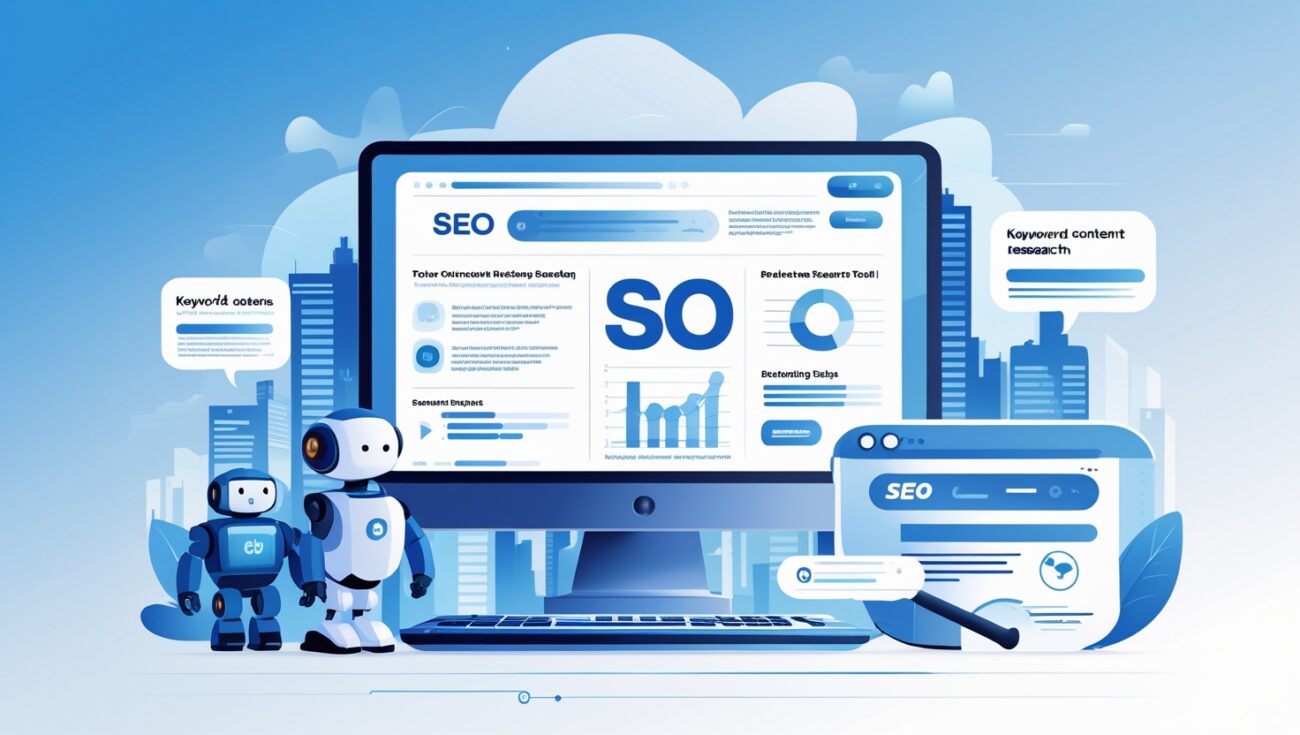How AI Can Improve Your Website’s SEO Ranking
As someone who runs a blog and manages websites, I’ve experienced how SEO can make or break your online presence. Ranking higher on Google means more traffic, more leads, and ultimately more growth. But achieving that ranking consistently used to be overwhelming—until I started using AI tools.
AI has completely changed the way I approach SEO. From keyword research to content optimization, AI helps me save time, improve rankings, and attract the right audience. In this post, I’ll share how AI can improve your website’s SEO ranking and how I use it daily.

Table of Contents
Why SEO is Crucial for Your Website
SEO is more than just using the right keywords. Google looks for high-quality, relevant content that satisfies user intent. Optimizing your website helps:
- Increase organic traffic
- Boost visibility in search results
- Improve user engagement
- Generate higher conversions
For small business owners and content creators like me, AI has become a key ally in mastering SEO efficiently.
Step 1: Keyword Research Made Easy
The first step in improving SEO is identifying the right keywords. AI helps me:
- Find high-volume, low-competition keywords
- Understand user intent behind search queries
- Discover related search terms and questions
I rely on Frase to make keyword research fast and actionable. It provides insights into which keywords will likely drive traffic and engagement. You can get Frase here.
Step 2: Analyzing Competitors
AI tools make competitor analysis easier than ever. I can quickly see:
- Which articles rank highest for my target keywords
- What headings and structure competitors use
- What topics or questions they are missing
This allows me to create content that is more comprehensive and optimized, giving me a better chance to rank higher.
Step 3: Optimizing Content
Once I have the keywords and competitor insights, AI helps me optimize my content for SEO:
- Suggesting headings and subheadings
- Ensuring proper keyword placement
- Improving readability and flow
- Recommending internal and external links
AI ensures that my posts meet both user expectations and search engine requirements.
Step 4: Enhancing On-Page SEO
On-page SEO includes meta descriptions, title tags, image alt text, and URL structure. AI tools help me:
- Generate click-worthy meta descriptions
- Optimize headings with target keywords
- Suggest SEO-friendly URLs and image alt tags
With AI, I can handle these details efficiently, ensuring every page is fully optimized.
Step 5: Content Gap Analysis
AI allows me to identify content gaps on my website. By analyzing top-ranking competitors, I can see which topics, questions, or subtopics are missing and create posts to fill those gaps. This boosts my website’s authority in the eyes of Google.
Step 6: Updating and Refreshing Content
AI also helps me refresh old posts. I can update keywords, add new insights, and restructure content to improve readability and SEO performance. This practice has helped me revive older pages and increase their rankings.
Step 7: Tracking Performance
After publishing, AI helps me monitor SEO performance by tracking:
- Keyword rankings
- Organic traffic
- Click-through rates
- Engagement metrics
This allows me to adjust strategies in real-time and continuously improve my website’s SEO ranking.
Why I Recommend Frase for Website SEO
For anyone serious about improving SEO with AI, Frase is my go-to tool. It helps me research, draft, and optimize content efficiently, all in one place. You can get Frase here.
Final Thoughts
AI has completely transformed the way I approach SEO. By combining AI-driven keyword research, content optimization, and competitor analysis with my personal insights, I’ve been able to boost rankings, increase traffic, and grow my audience.
If you want to improve your website’s SEO ranking and save time while doing it, integrating AI into your workflow is essential. Start with Frase and see the results for yourself. You can try it here.
One of the biggest advantages I’ve noticed is that AI helps me discover long-tail keywords that are easier to rank for and attract highly targeted traffic to my website.
AI also allows me to analyze search intent, so I can create content that answers the exact questions my audience is asking, instead of guessing what they need.
I’ve found that AI tools like Frase are perfect for structuring content logically. They suggest headings and subheadings that improve readability and make it easier for Google to understand my posts.
Another benefit is that AI can identify missing topics or gaps in my content. By analyzing competitors, it shows me what subjects I haven’t fully covered, helping me create more comprehensive posts.
AI helps me optimize meta descriptions and title tags quickly. Instead of spending hours rewriting, I can generate multiple options and pick the most effective one for SEO and click-through rates.
I use AI to suggest internal and external links, which improves user experience, site navigation, and overall SEO performance.
One of my favorite uses of AI is for updating old content. I can refresh posts with new keywords, updated examples, and additional insights, which often boosts rankings without creating new content from scratch.
AI also helps me maintain keyword consistency throughout a post. It flags areas where keywords are underused or overused, ensuring a natural flow that satisfies both readers and search engines.
Another advantage is speed. Tasks like competitor analysis or keyword research, which used to take hours, now take just a few minutes with AI.
AI allows me to experiment with content formats, like listicles, how-to guides, and Q&A sections, and see which structure performs best for my audience and SEO.
I also use AI to monitor ongoing trends and search behavior. By analyzing popular queries and patterns, I can update content proactively to maintain high rankings.
Finally, using AI frees me to focus on strategy and creativity. Instead of spending all day on technical SEO tasks, I can plan campaigns, brainstorm new topics, and engage with my audience, which ultimately grows my website’s traffic and authority.

